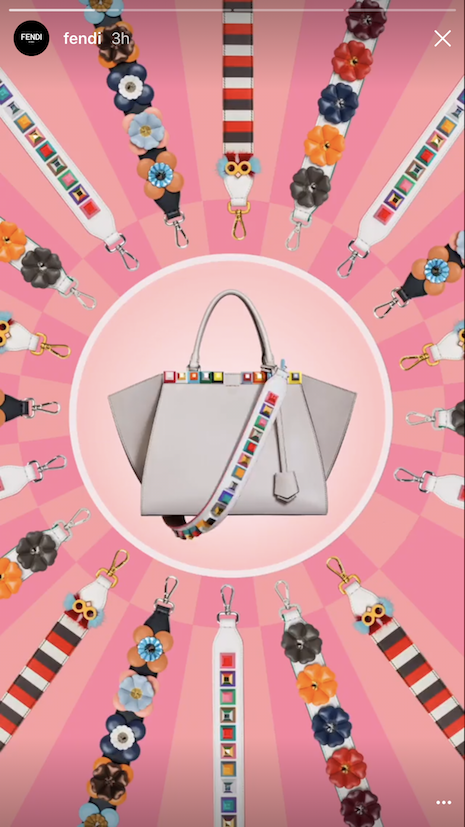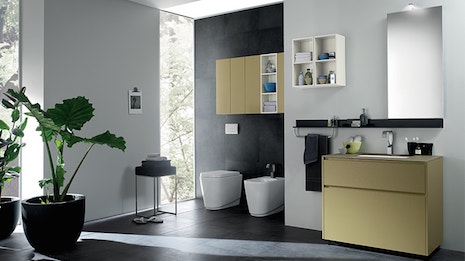NEW YORK – Millennials are the most important segment for brands to connect with today, and doing so requires reengineering how brands think about their relationships with customers.
A panel moderated by Bob Shullman during the first Italian Luxury & Design Summit on Nov. 30 took a look at the path the luxury business is on at the current moment and where it is heading in the year ahead. The executives on the panel agreed that millennials are the future of luxury and it is paramount that brands evolve in the ways they connect with millennials.
"Today, inclusivity is the new exclusivity," said Gaetano Sciuto, CEO of Fendi North America. "Beauty is growing so fast for this reason, because its so sharable, so inclusive.
"Brands have to speak to different audiences, most importantly millennials. The way you speak to them is through your DNA, through your values."
Authentic relationships
Millennials today have been shaped by technology.
Growing up in a period of unprecedented technological advancement, the world that millennials grew up in is vastly different than the one just one generation before them.
For this reason, brands and marketers have to understand that to connect with those millennials, engaging with them on the digital front that they are so familiar with is key.
"What we see now is a different kind of relationship between customer and brand," said Biagio Calabrese, general manager of Intesa San Paolo. "It is a relationship that is two way, built on the same common values.

Fendi has embraced Instagram Stories, a millennial favorite. Image credit: Fendi
"The brand is influenced by people and people like brand because they give feedback to it and they are on the same page. Technology will allow brands to communicate and enter a vibrant living relationship with the customer."
Millennials are media savvy and technology literate in a way that their forebears are not, meaning that any marketing attempt that bears a hint of frivolity or falsity will be ring hollow to millennials.
Instead, brands should work on building engaging relationships with millennial customers based on shared values. Of these, sustainability and ethical practices are an issue where many millennials have strong feelings.
"If you look at Kering, their sustainability program is amazing, Tiffany and De Beers as well," said Mark Hanna, CMO of Richline Group. "This is a major concern for millennials that has come out of our studies.
"Responsible products are important to millennials today. It’s a gigantic important part of building a relationship with them."
Mobile dominance
The millennial market is worth $17 trillion in private wealth, a figure that will multiply by 1.4 by 2020. Also, millennials have massive spending power, with the global value coming in at $2.45 trillion, which will triple by 2025.
Millennials’ spending power has resulted in true luxury aspiration. Currently, millennials are responsible for 20 percent of the luxury goods market.
By 2025, millennial consumers' spend will triple and the demographic will control 40 percent of the luxury goods market (see story).

Millennials desire brands that align with their values. Image credit: Scavolini
One notable aspect of millennial habits is their devotion to mobile as a channel at the expense of almost every other channel.
The panel, which also included Jack Mitchell of Mitchell Stores and Francesco Farini of Scavolini, agreed that mobile is the best way to reach millennials today and mobile’s dominance has caused brands to completely rethink the way they create marketing assets.
"Everything you do, even creating an image, you don’t think for a magazine or for desktop, you think about it for mobile," Fendi's Mr. Sciuto said.
{"ct":"Eb6lwlHhlVjoF8bC+pf0HD6OLHz1GkjqFJIJqNR69ENcPHiassP7ezEqrgR0jK4t73i9eaHH4ENvk4+CYrF6y9YE5JcR+WDB8xCCD49w38acMO3lchT0BGm3TRPpEuC0dbWi3xgL4tvxvDEUgELuaclrsew1Nj1X8ni218KOLvMeQkGwr50tkSK5G8ecHGU+dHTcTEddpmteBh1rXU9cKOVPXBcOJJ+mLBROYEm0Nphd26u0KN+WC74LMuot98ToLszbC4vNwdkeK3\/ElaK0dMVzOxgOXKraXu0IwhWCFiVf5VEJnArUx5DeQIRlH8wdSJaXSaLnwYR5N0x9d384mDkJ1NpEtvp8Hc0T2kBX0ywr6EEUyHmr4ayPG2CzZQk1ORBvWdE4Emi6SfOtvMM+Dpy7vs9K1nEl3EWF4sa2a3yohHl7gFg07YRCBVjJ+na85wtgAT31N7PJ6zcXQi6ilfwFuF2ld9PMjN6HUnKI8+UdPZPgEIWtYBeDEXA7diCJONdshyOeVcLNfVa2SrS4uUN\/j4lD1Lg+MM1Jmzxo\/l\/YqAGqQBZy0JCoJbnfN0Hb5F7qiJcwpN0Bvh445Bn8ismMaC3haEbIzmTkj971ddUUroC54fM44ssExSkIYSM4PNAldmX6AZlzIV4ceiDk0V3ImgDI1\/VgKW4NwByrIr11bqy7EpX5\/lELuajNVrWAfKAK\/lZavKvp93QMdDcq5luptB6FJ27YuNg1pifd\/yaXODUlOHagqnsh+RSPBRTAxOCdwQjiI+Zq+9sl7rHohjLCU7gBCebh2NCrSgyZ5LCLxHfk1TL+sKNWnUKf6OUGFld0xLZnG0\/QJERuvthIYQFSWeAvvknbcnYGrbVhUhXibM3WZJZaEgokGGyrWuIzhq8tLe1LHNif\/uEtbrsC1ONpOJhuDwTd6HR+TngoqKK5oz0NrZvQS\/oxAeORB+xqmysJZdNFyTMTPB4Ohoo\/L4HKPBJ+fKTuC6G5N32D04WLERu4zQaBIS0vZGMkUuwOuhND8HpRHQKEYdhMwOFzf2Emam0gUxa9034CgKLrrapVLKFwzDr4OWQvj\/O4KYT8ZZJCFJ8+dfHBHsmnHlW0FIpOjD\/XwkDsSn9GRAunSTwroLOEcYFETxVLBrZOEH980cHOGhfTGrz4anJnCB+cUxEc2\/AFcpip\/H8IlxTZt98GAQezYstSSqVPdqnMeM8pyiwxUBwCiZKwtlhkU7Bky+KxearV7nJtuBv5iMJ6bCCAZo5hSzPOkFIPEdJuk70mvJPaS\/Cs8V3l524HlDkg4NneB7f7qPG6sZn7DHrqd84mcfQHy0abkmD1vGQE1qfLAo22gowM+jaOauZWjmq\/It7PnHbDRiVlTCc7PaUhbX9iSB7IiGjjxeuVGekYCv225oqi\/9U8w6dyyt9rvt\/J9dibyIhhGyCaFTDQVyiLF0oRlM3jkdChLyfBGrJdsCCGnPuQFi8iDGMUODSVJbQv\/8SV0UPp9NTI6+tpXfzPwzZfOo7A4l4L7oSXprce5PrVv\/2FuyiB\/yUOTIwwZxeMSGpb21qpsYZEoofH2Oek5g\/wnM8baUbKbpn+wlHD+bVumKsYbnTZvp+KLu7rq81k9iiyrrugEDsBI+QQawYO2afcc1a2b10KjBHn3mGusDKUoRSIUZoGwfGzFhd6KeJD7IwsroGUIzMeEiNrqh5MHaJNl7HZaUaAlFip2dXukiPWYTg4y6Nlbf5KMH\/ySHt+nj+UxtANzVkZ\/DJ4rlM1Nk07U6FcZvmh6Bl92q2fAi1vEEOLabLXYBxV\/JSEK1frtckEAjJFlgJ5WU90Vq+5tU8Qx1WYuhbKr9cC3DNGLlTwlH6nAQD25D\/RkbhLKVw+mXSnX4FGgS3XVDxsWQ3RJPFiEgwj9v1pTngDPsXqOanS6mZ69Up9gcQZM1Q8+PTs\/pBVyuhRY2\/8c9Zt+nTxaX1lISVp1FXtMYVR\/aYfqcc62oVVQMXlz2yLewvHuJY6KWwa8wPtBT6FXUXnHbu6XhDL5Nb1UOCgMkrMjBrbCxe6AVcIs68WVuOH64YCbfzljuGZGBP7NHr+adiSO\/Iyo3LW1gwwKxaCeZrN2LfWg3kK1RdDdkHtFGj2RxGceAL1impQ2lLvUataXCwHFMW3c6x2A0bjcGpNYbupWnPJuS44xfJCWQqNBHPj1laqqxJAi3Fv4VPrBuV5rej0s+6aN2l6TqCGaBevv8JjgJhYIzcZYVL+gHjeVdtb+3+esdOxxL5Jm4KMx79rF+YJtqtN7cYLfNCJK\/M091cSTUpZeKf0co6tHomMlv7wKRhxc\/8V4zrPG5KpLQ1vVqqGZCyIlFzeTbTa7ncxi4zlzTdBHUbeoFX1e4MQUYX7KAVxtjQjaCRTZbskHKrswLlLkNiaKygyrDA4+neQFAoUikc3UOAjZtdb1sB\/bM8C7JbHi5y35RUt8rON5QkR13dMrhtP3tCWHyhwZ8n0xlIU4HCvqqSLjx0VR5t+4ObrPDmE+pQSep1JBsQbrCDuB5c\/UY1pVdSc2zTsDQpOCsYQaTD35afsB9eiy8H2O6vzZDOLoKg7gQpIS9vilH2BUnY9kcTvzjylYyAm6oMjSUzv9cdMTU7MD++xTJ3UQdXt6tiX+\/3R5CVlMOpLmBzjiu6QnO73MSVh1dMPkijYYx5W9Lp3+jnjp0tjEuEk1z9WwWWffim4B3X7VYJXqGcME1uZT5INlsB5p1RoF4uqteLdEaASWJ7aCkuZSxpcxPUmG6JaLYZk0tF2\/8BldA9ZoaPqN+ao9CMxA5OB60p6glvtL6MUGEtl7ieJpx6bMxaWf5PbneZB5I6A\/Aoudu+boJKyl+lN4Eg4xjX98QPdYe9+EFDzwglbIxVkUGXentmwaWGrnpAYn10Dj402K9S69620FnTo19y9ISIE2EqVhL8otPmRK8Lf7CFkHYJdeTL9ejDvHL04II\/DqFSkI5FFJwTU+y8sVYLGV1cDTlvthBU2Mit1OO0Q4Bi+Pf7UD0Yu4UHNYbMR5NQQ1Rvhe\/wb0QQ4\/BNVT0VQujM+bE6ck2MG\/ZEe+QR\/EFSgacaCxVN9cMKK0hRxDqHden6wYneELRX9LthepstIY2PiByY1rwAviownBHL3+pkcbxcrucA7GQp9AbUkHfuNliiwG36njByvwTDcBvEJgyNo9VbnyNLjIJqDPDlDQTUh1QTL4P86Q\/DBwvGSzJPl7VnDMrbcbwHXx5ZbowSjSNK0Pem3N2k\/K9U4J7VXWIVQgq5g1HXRX8mssX1qNx\/UmLelWYu3WsSHGhuA0DijS\/A0koJnV9h9SdPrl781PdSeZnqERcXEDWtobt+f8HcdeLosA2LOTPvFiW9+QmSTOFXczrSoKrfa8V9zFRrv\/isShXSDKCwpabvHjutAAnqDxyeidRE2pd9rJiBscMnbjy032krgGV\/M1abfpCTlVIGpZwEq8Bjf\/7pnvYtezQIQ8AXpolSwXVY1jd\/ZZLnuAI3CAz8ATa2Ve0jQ0TaoGIjhkFUlQKClb+2hT8hUPq4jZIOGpM4RMJWr1aHs6uYrip3bTh8qdNYQvPVHN\/AyJ\/Z4hIf8BYlywQiafo6z0a+WxXHOGJGIAmRcXrjgstIKvrpGpyh9basZNPxCsAegI71qcgzBzDO7bQH4xsKYjQP4mzAGt86Qe7uACDAj9eVjum00k06MK7GUvuXa5nTmSgWgQ4SbU6V9WNs9hv\/5L38A0tJLQW6UZOe2\/Ggbuj3HNwpuBQ9gmXyGI\/U4AO2IHaRlXPQS3Ur+DKz4h1uqsdUMbM5Ua71AXTEqmmLM2UyXjlV+tckkKwoqAYprkUnRJqut89w1oH79sfBoYUhl22FYAj3TNC+Zx4IuWrqV\/P0gAO7VRUCGsJsCW\/MnhijPNOVrgLdEW+nB4POv8hy35ofOBRtNHpWabTYBaCsMoBi9AFE2GIJ+RhpWgzow3UNZwl1Kg5hqRKnF1Qg8XMI0JqmViORCwyUHF\/niAjbHLxyaFa5hR8msPRGzCm+TI7ydgJQELPnNdP+H0ptYXrRxlF3YQEeXkzO1z8dmD8uvlqSSqEj4yPKtDDt6QBSfJqMwWUTRIJpHuYFFZaRQG02WO481Oe1dLjLT3wyh3l7nyw2gn\/1sSMsvzBNGcoJ8t5hUa7yze2tX89TsYyWFqdH5EJDFYAwbVQN601eHm+CKpexy5U8Xv22atLUlOrlxFJmv6v+KhkUwfm7qxTKWrnxCOcOtwedlTpEJZ5EMGAdH6ARD1\/CH0PCPwRiTr8O9cTetzOEWgJmpwZSmllIh1LgIoE7i+kMjaZoR7qVfJ\/IZFiplRc2sbgLsB5q\/w8iq6rwaKFiMI34nHCkcPed9qm7cNoI9Si9TlY2JlYifc7B+R6vGbL+suaaTV1\/plpuifYwF1KiIY1rTDTrRko7DVxFDbMaYJt4611nWAEXHqR8VA3RhxwZu1r5qbLKc9h\/7kR\/ZOktsSxvMklTszMt3DBo+rpUossvxSI6V+4D1OfMtLVOR0gPBGqixp2gFdbciaXy8xAOnVJV+Eja4Et5yHtAXxP9dzai6veg9QqWL8jcrF34J4GEXKCUlM79yx5zXuCc8FeE0DYgXGlmRScVx2eQUz5tdvwMp8tjlgQC\/6VbT9A\/RNEPB6yy6E6gfancE477NtkEjB9WghDAl1xbhA0DDbPRsE7\/UfKFUVL9g5RfUvTsw6nXGSxpHPcLYw4iIe4bqeMvjeanZAxwVrL9WP29oQuZBd\/hXn6Qrgt0DotAM3X+RNDrRoBS0q5aU9Ik8Z8rpVV6bXz1Jiq3vAeGebfQ4nGuP1yNJB\/BJT6D8Le6eoY+VTrnKqRUsj+koYexVs2Az9Q8BjWHLsLDlN3uPlcBat7W\/cHTOIGOkHw1NmGWLrPb1iUVhr3ITARElfy8nQq2pfYbSe2\/d\/hernbdyK8yiJvORJXRKmwU0uu3IZGieCcLTwfSJEzAWOnryKxAHRCzByPqL4StNofaAsjY883rjS0q\/iMxN7sTHKLXOc6nFz+vE61GOTh5OgZsn+qLnVh7E6ox9d7gTPL+xsUBFsYneLYQWd+zFZ0tS\/qojibqpyX5T5MMJTy1XOCXH2Sj04g3PnVDjQLYCNxg+ubvocKikjUAmfrL3TtpkONoVUyiILVOodKlouJ8OdmAjJVLJ80GApEUyZvbpf4qp18Ii\/01ZZS3PG+34yDEdPTnIrr9epuRfONkrNgywpNK6ASRAwpiZ8CbOrUtKSyUUXY\/F1raaAurKZyUCFPtnR136g5l\/oKxMx64fpywA6tvPewp\/f+LeEBqK2CfdS\/eLLvO2xsa3OqU\/zJhKX9EB\/fjHfzOikFzqCFeb6XTebPz+qBJKxzQ\/JSMHLYsbYonVewZC1jhHHtB5htigOCnjnX5JuVICZmFxatyqB4aGPVtUsgWxE29uIv68oayu7j1yZPmX6TLHtFN2QFNGGvCVne299v+pR10lum4Wok\/45TnmB8kJR53obnH1D\/GlZX2KtQuhkkUQV21HV+9x3oUGtyrDvERx+ZKZf7nt5+BFZiR+HoGP1f8zssAUV6tEia1N3cQ1aDBg0Bo926bQx7d\/566rASjdK+XLyBroAZ1XB4eT0XMD4EsAqtzgHhmbUAKeD3t77iCHPbPdQb1qqde2UB8Gr+Ju48wN1CAohqqC4j6FzdhqwqvVxc7f4o+Yoy7mZXsWkveePIb3n6gH9i2yI4PCbehSq5Y\/l2y7x9rz\/V1kLj8KSyNjogdbFJj4xa4ebj+YGwlB9XllWOIGfK6mq1goRj+I6Zr4mP5gQHOtzf4c4G\/c+umniruWLWm6g\/tHPGbSthiBdTlI8mo8XLRkZLHaZKWQfJOSbl4KhsxrS5Kepl3QUlNrZfHaZlYm693vu7dUL+qwZ\/s8rPhZRTgOcezoqOZAxNrCHXXNng4jPkwqNFZ\/sZv0D0r9RjwhTpTbeGFh7sH7nhX4s1PH9sUygajoCXuhek7hJXAEDjPdWAuShoTzx4UmCVNNIoUoocAGYY9dMJid41pY\/HThUzTLuDnEsy8IPjJCNCAigHygafRKgfpTpjOdiZNCmsOkjOI5PWFRZ4mVlioBj4g4gZTLqxYAyU\/YBmTg7043En+kYTmT20sxBsZJanmrcNtmddlnTkNeOqr+9fy24xq9t1JyPloImPHmC\/Kb6tHPnCybeE6yHeI6lv78OZJ2\/yk6e8p4ojyOwQTOzySILUO5XdF5\/2kYsGTCfckxPjHK2DPoX1YkH8TByQNmlR7WYcyn93qWTaUC\/fkJGyI+IoIUWarhtusCdEl2nC3HanpG6GGKEYCpgcwl6fjkLMlNhlMLHJMRb6QnKO1GMR8nIkejK0U0QXW0F48EI3XTlhsK3O5Rjqr9u38BLthxyCANeptIPAvkx9PVhFPiRuYzFhbcCa5jXbGGX0yyiO6\/UIWQVMCyXSTBJw5L1bhg9h9pknkNV5UuxKJPAwASSnbz1CIrC5zD\/GCCYLFoOx\/mR+gb1qJX7KBtphYO5fBUhn\/hyhXbappWP4IThpDxbyuZnwtqJ52hsYPgYmQt9k+JI7Q\/yXrsG0bWrYlif82U","iv":"51f42d07e195e2eeace515f193bb9a28","s":"ec36f8b9dfc3cfda"}

 Digital tools have reshaped the way millennials interact with brands. Image credit: Fendi
Digital tools have reshaped the way millennials interact with brands. Image credit: Fendi